Bulgaria: Why Europe Should Be Interested in The Protests in Sofia
Every evening they meet between the Parliament building and the residence of the President; some posters and demonstrators stay permanentely and can also be met in and at their tents during the day.
Corruption and questionable power relations within the state demand, from their point of view, profound changes: not only call for new elections of parliament without manipulation, but also for a constitutional amendment. This is to ensure that the consolidated structures do not continue. „Оставка —Resign” is the major demand of the protestors. The demand can also be found on numerous posters and even on printed T-shirts.
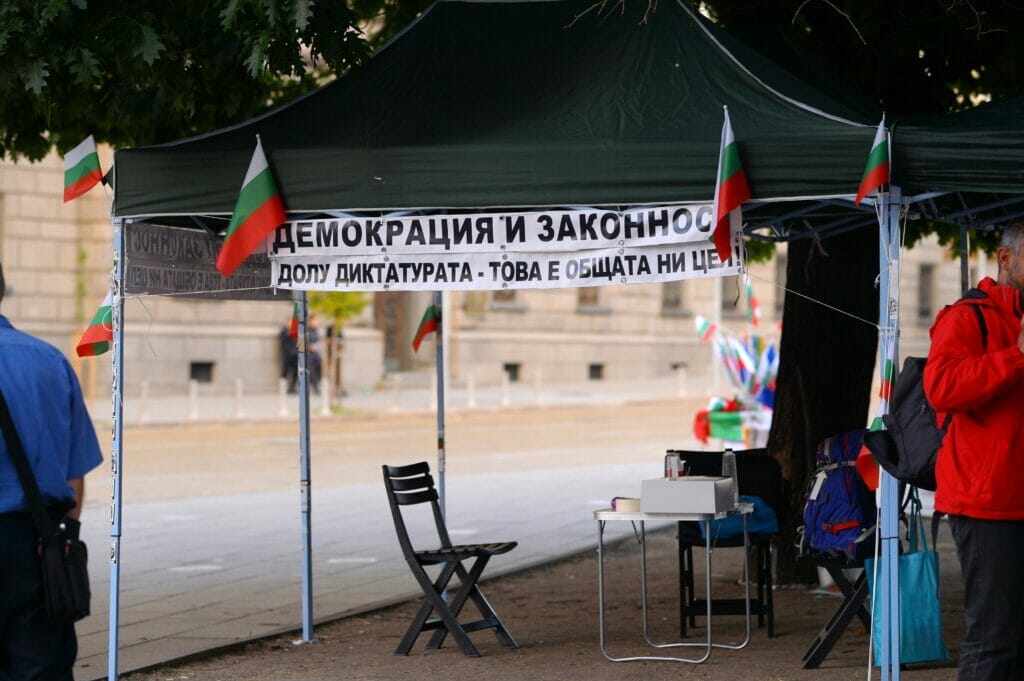
Line 2: Down with dictatorship – that is our common goal!
Demonstrators keep setting up tents. Some of them are approved. The ones which are threatening the traffic are removed from time to time.
Margarita Krasteva has joined the protests right at the beginning. “You can’t expect us to endure this shit for longer,” she says. For more than ten years, she has seen how corruption is harming the population; Topics such as education, health and infrastructure would be far below the country’s capabilities. “I am against the mafia and the stupid — sorry for saying that — Prime Minister.”
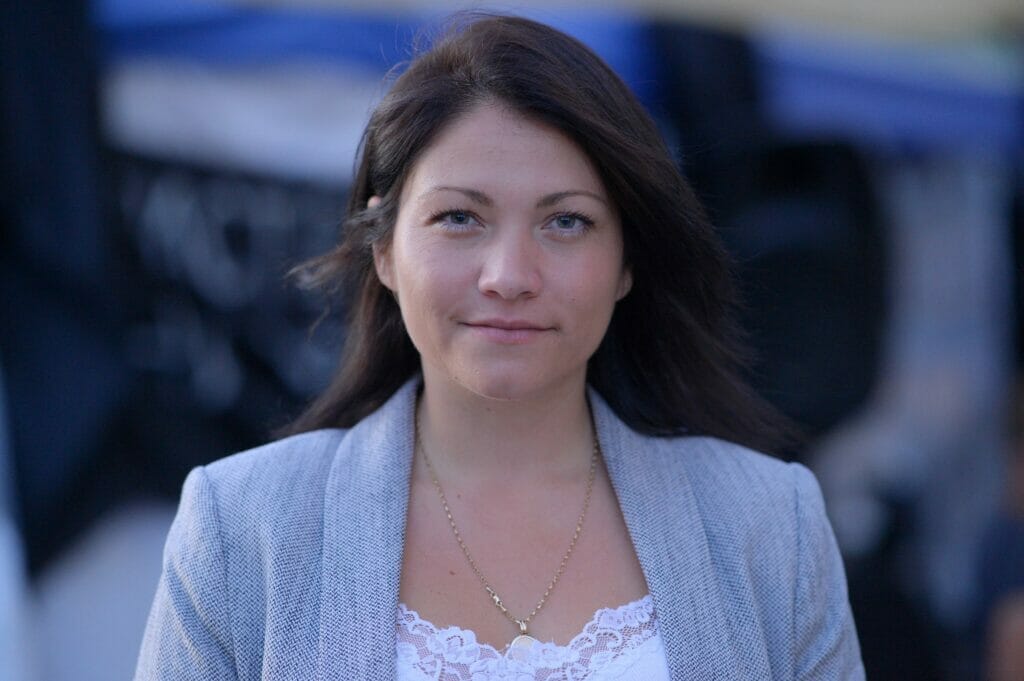
Krasteva also supports a movement that is much older than the current protests: “Системата ни убива — The system is killing us”. Since March, mothers of people with disabilities have been camping in front of the National Assembly building to draw attention to their predicament. “Mothers lose a lot of social assistance when their child turns 18. But they must continue to supply it. They can’t look for a job because the children, who have been adults for a long time, need their support,” explains Nastimir Ananiev(Настимир Ананиев), chairman of the Volt Party in Bulgaria. He, too, takes part in the demonstrations almost daily.
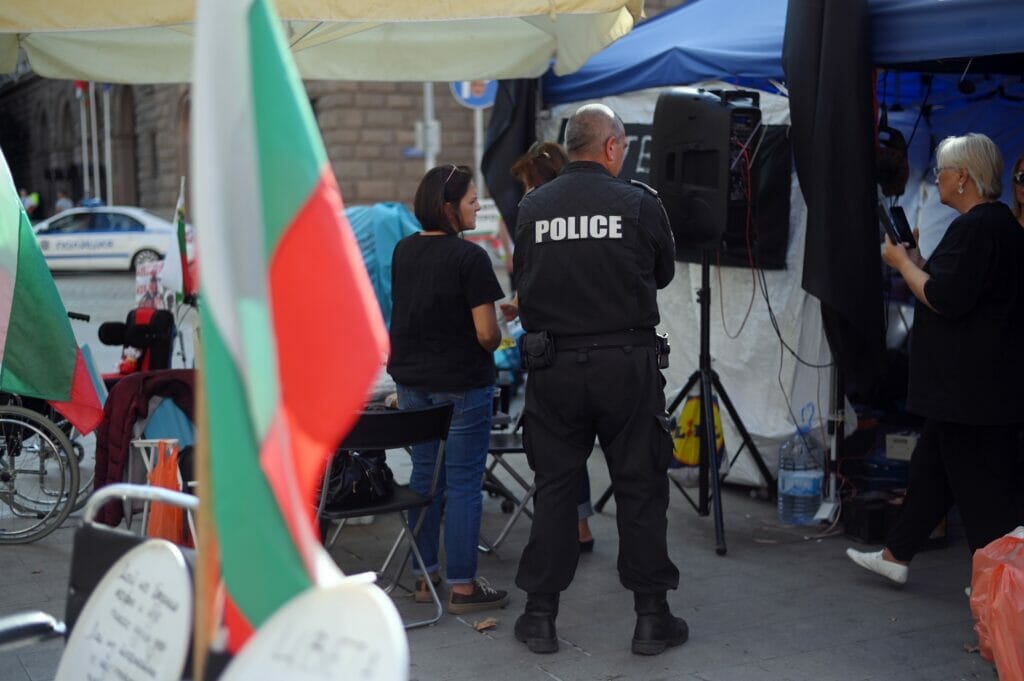
Ananiev, a Member of Parliament and entrepreneur from 2014 to 2017, has been living in Bulgaria since 2008 after 11 years in Ireland. “If you’ve lived in a kind of normal European country, you come back here and you see a lot of things aren’t going right, you start asking yourself, ‘Why doesn’t it work there and here?’ he describes his motivations for taking to the streets. Because of these grievances, many Bulgarians would seek their happiness abroad — and that diaspora is now supporting the protests from all over the world.
Systematic corruption
Asked for examples, Ananiev doesn’t have to think long: “You can find evidence of corruption everywhere.” As a recent example, he cites the aid packages to mitigate the economic damage of the coronavirus pandemic. The government has received €812 million in fresh EU funds. In addition, there is EUR 358 million in unused funds, which can now be used for this purpose. But it didn’t reach anyone. “When you go to the city centre, you can see all the empty shops,” he says. This development has only been in place since the pandemic. The criteria for the aid were simply too complicated.
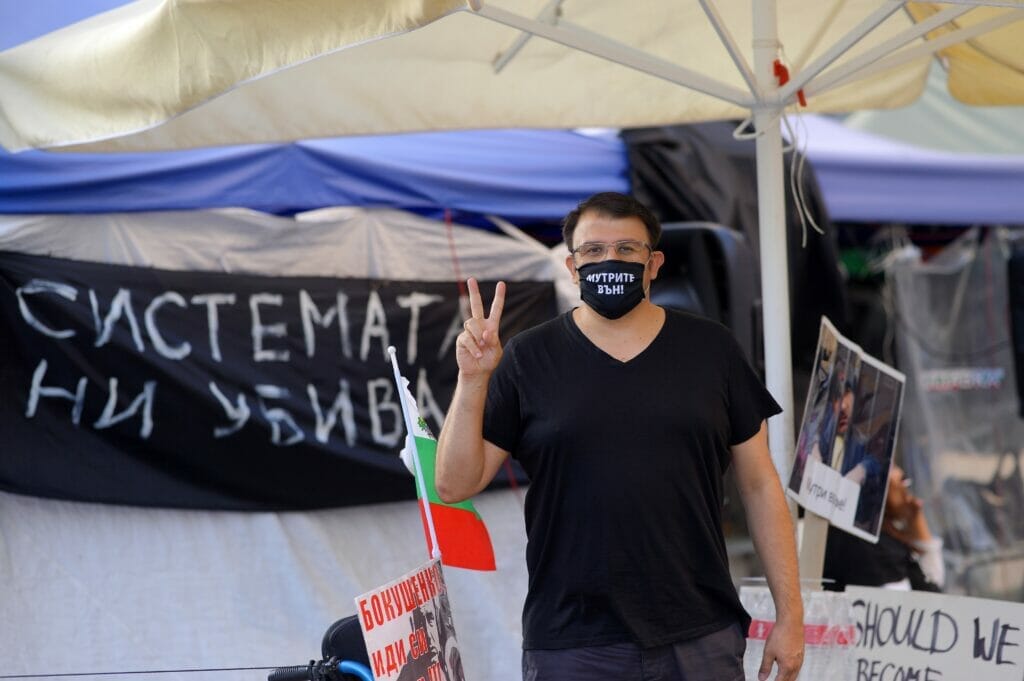
Ananiev is even more incensed by the outcome of the EU’s rural development fund, which aimed to strengthen tourism through the creation of new ‘bed and breakfasts’. “They gave money to renovate private houses and create guest rooms,” explains the politician. However, it later emerged that in around a third of the funded projects – half of the total funding amount – the houses, including villas, were only renovated for private purposes. Some of the owners were close to or even members of the ruling party. “For me, this is a clear case of corruption,” emphasizes Ananiev.
For him, however, this is just the tip of the iceberg. “We don’t understand why Europe is not responding,” he says. He could understand if people think it’s a Bulgarian problem. “But this government is stealing your money,” he says, referring to the embezzled EU funds. In the end, the indifference of the other governments weakens the Union’s credibility and anti-European movements. “Why should we stay in the EU? Nobody cares about us,” he outlines the line of thought.
EPP supports Bulgarian government
In this context, a statement by Manfred Weber, Chairman of the Group of the European People’s Party (EPP) and CSU politician, caused frustration among many Bulgarians. In July, he announced that the government of Boyko Borisov (‘ alternative spelling in German: Borrisov) enjoys the full support of the EPP: in the fight against coronavirus and corruption. There have been reports for years that suggest corruption even in Borisov’s entourage.
Velislav Minekov , one of the three initiators of the current large-scale demonstrations, even goes so far as to say that EU membership has exacerbated corruption in Bulgaria. “I do not understand why we are part of Europe. We are totally forgotten,” he says. There are always subsidies, for which people should remain silent and not address grievances. With money from Germany and France, Brussels has created a powerful mafia. “A real oligarchy — with the same money,” he says.
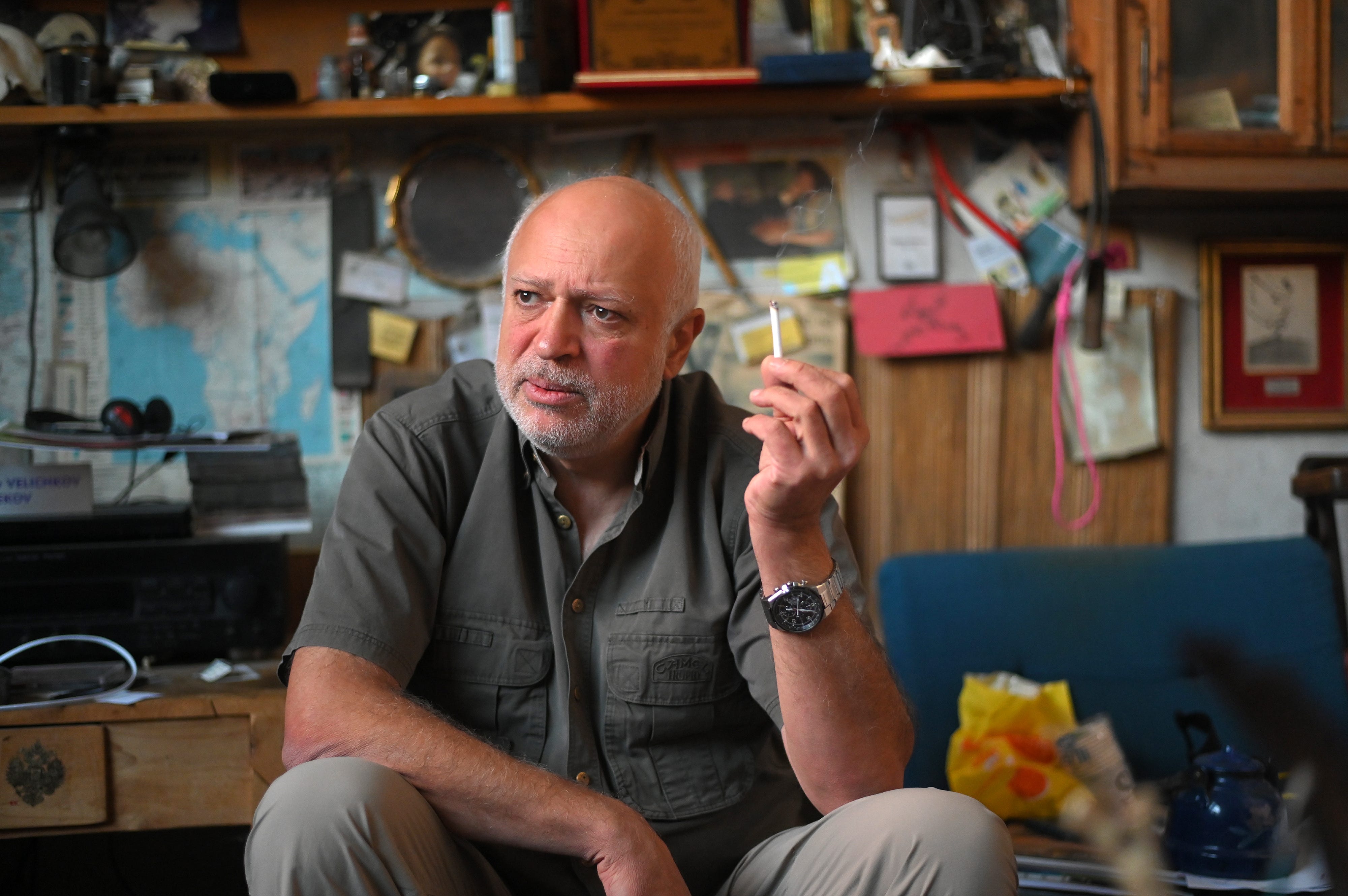
With the corruption money, a small elite first bought up media and took control of the country: “It’s like the Ottoman era: someone has a village, another has a city. All together Bulgaria in their hands. Step by step.” In the countryside, this kind of feudalism is much more pronounced than in the capital Sofia, says Minekov. He himself had spoken to contractors who told him that he could implement road construction projects for 15 percent of eu funding; a lucrative business at the expense of infrastructure.
Minekov is a sculptor by profession and has been known in Bulgaria as a government critic for several years. He has already received broken window panes, car fires and death threats, he says dryly. However, the barrel overflowed with another event: in July, Attorney General Ivan Geschev (A) provisionally detained two employees during a raid on the presidential office.
Even the respected President Rumen Radev (A) then spoke of the “mafia character of the government”. Minekov describes the attorney general as the right-hand man of the oligarchy with a bad reputation. These images were too much:
He went into the presidential building with armed persons with automatic weapons and protective vests — like bandits.
He decided to organize a protest with two acquaintances, the lawyer Nikolay Hadjigenov (A) and the communication expert Arman Babikyan( thanks to a television show, they came up with the infamous name “Gift-Trio”. Meanwhile, there are T-shirts with a green “3” that supporters wear proudly; the trio’s Facebook page has more than 50,000 likes. “We are the national idiots; everyone knows us,” Minekov comments, laughing.
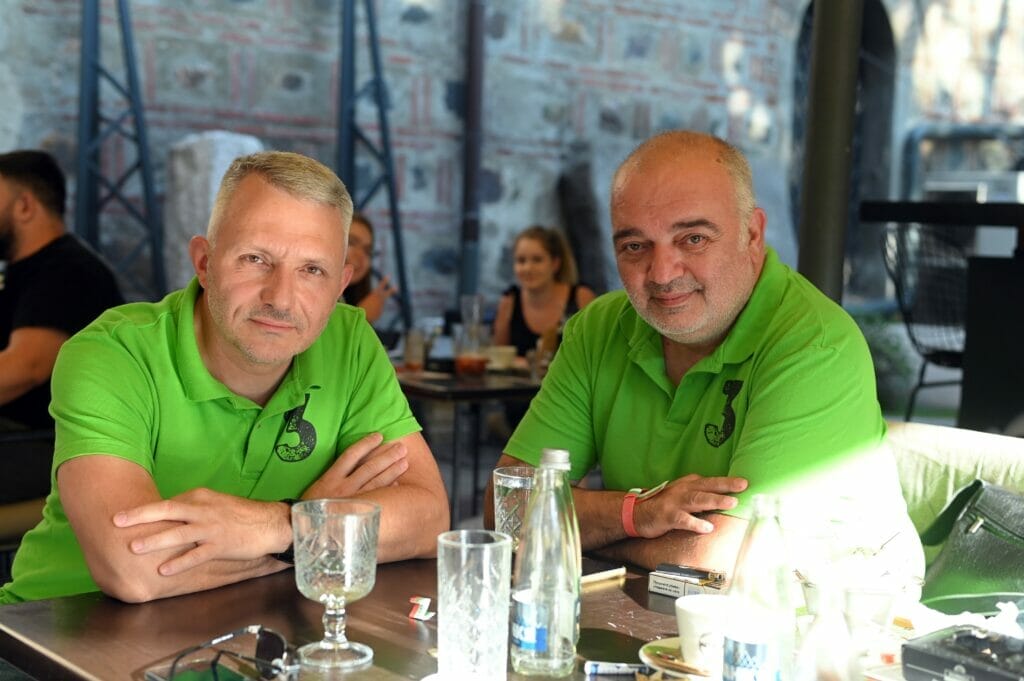
“At 11 a.m. we said we had to be there,” Minekov recalls of the first day of the demonstration. our hours later, they were on the square with 50 people, at 6 p.m. with 100 — a disappointment. But suddenly: “At 8 p.m. there were 16,000 people. On the second day 20,000. On the third 24,000.” In the large demonstrations there were up to 140,000. “This is truly unbelievable for Bulgaria,” Minekov points out; the country has seven million inhabitants, the capital Sofia about 1.2 million.
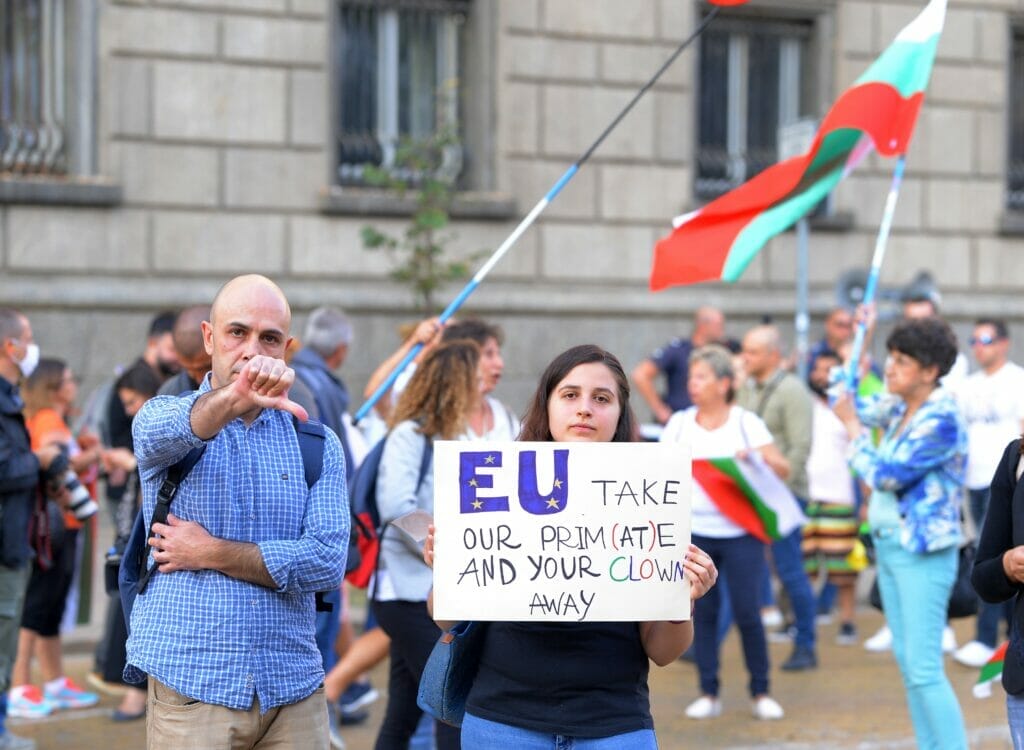
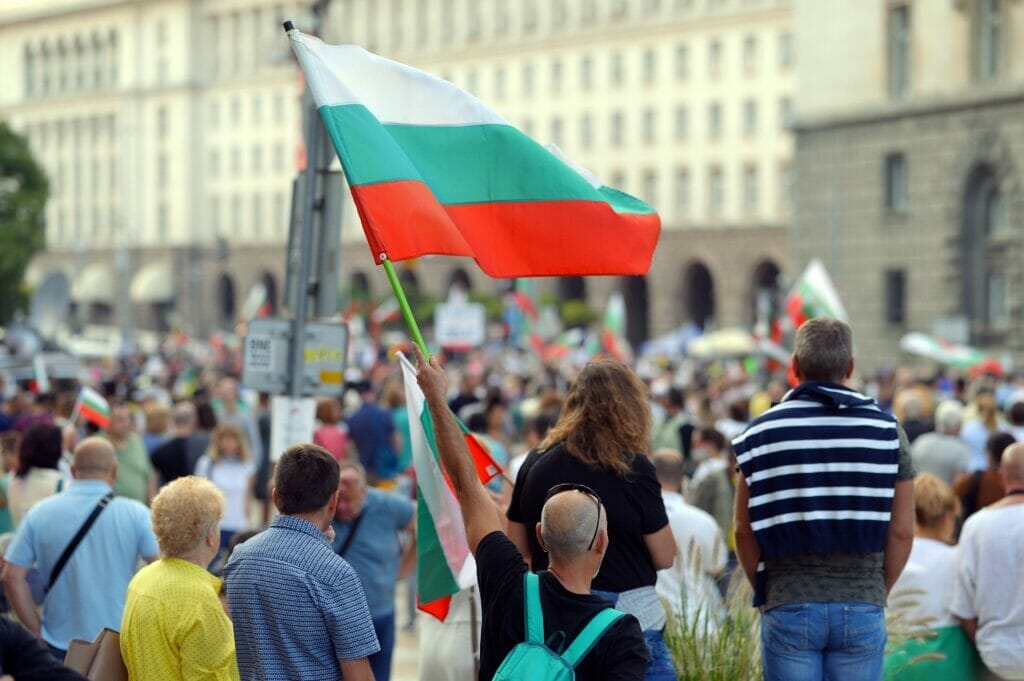
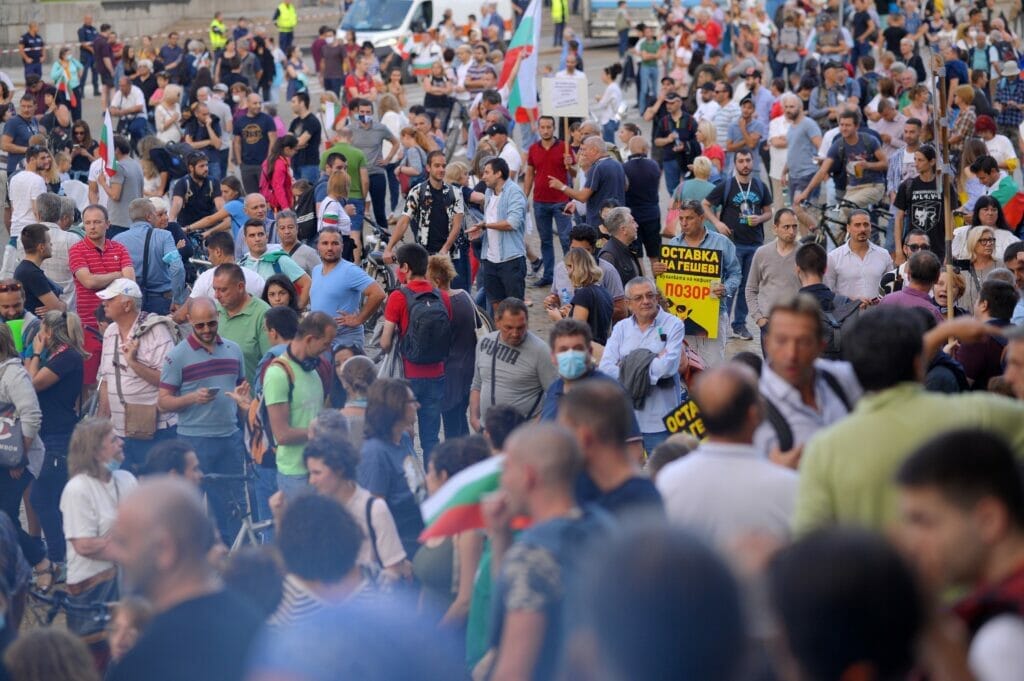
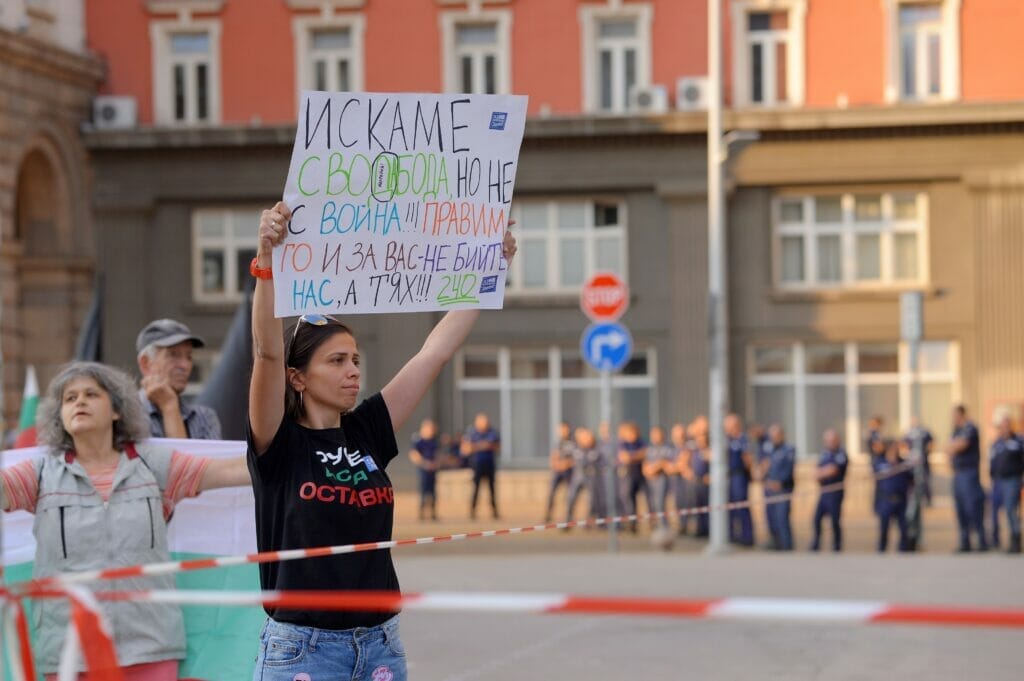
What do the demonstrators want to do with their protests? Far more than just the resignation of the powerful attorney general and the entire government. “First out with the mafia and then a new constitution,” says Minekov.
Grand National Assembly for new constitution
With a so-called Grand National Assembly of 400 deputies, almost twice as many as the current parliament, the attorney general should be disempowered. For these new elections, people are also calling for electronic elections and comprehensive, consistent and competent monitoring to prevent fraud and counterfeiting.
Recently, the demonstrators have achieved a success: Daniel Freund, MEP for the Greens, who campaigns against corruption, money laundering and tax evasion, is now receiving support from Brussels. “We have to face up to the unpleasant truth that basically billions of euros of taxpayers’ money are being spent unchecked and uncontrolled by the member states,” he complained at the demonstration at the end of September, to cheers from the people. Parliament has a majority to change this practice and to link the rule of law to the allocation of EU funds. “But a few national governments are blocking this.”
Velislav Minekov does not know how long the permanent protests can continue. “There is a danger that our protest will be destroyed,” he says, referring to the high costs and the large organisational burden. But he hopes that Brussels will soon not only look to Sofia, but will finally act. On 5 October, Prime Minister Borisov is due to address the European Parliament — then Minekov will also be present and explain the views of the citizens.
Text: Lena Reiner and Niklas Golitschek
Photos: Lena Reiner
Videos: Lena Reiner and Niklas Golitschek (Editing: Niklas Golitschek)
Vorgeschlagene Beiträge
[mc4wp_form id=239488]
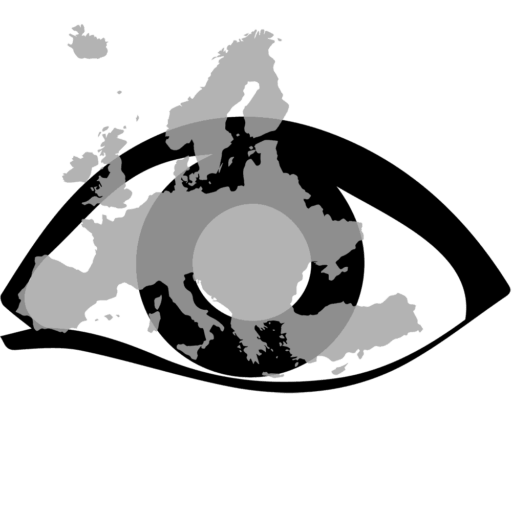
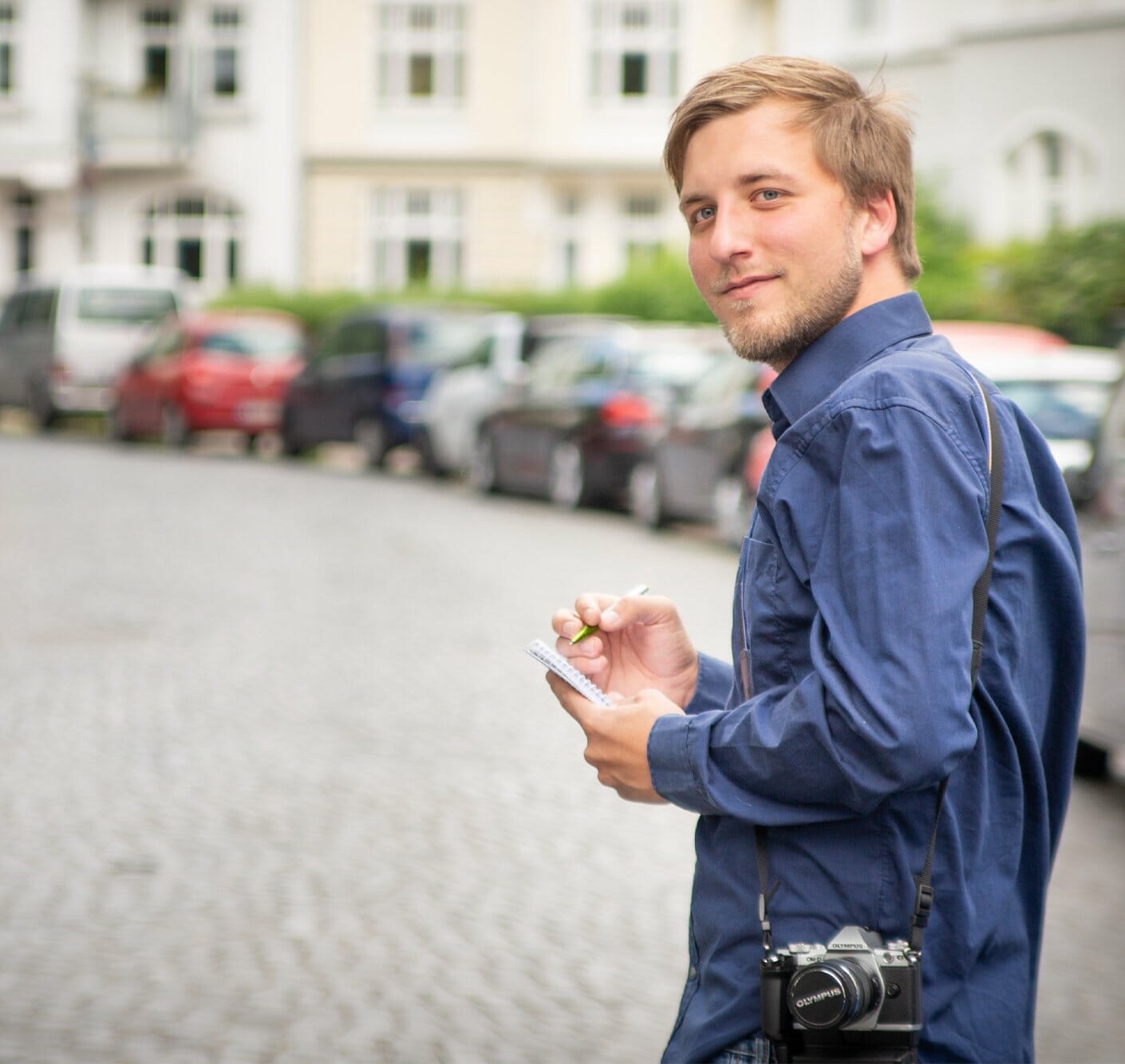

Leave a Reply
You must be logged in to post a comment.